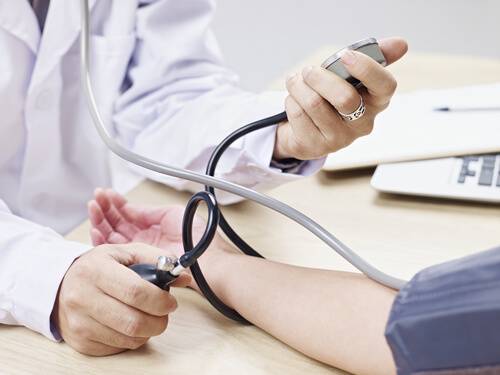
Most people believe that regular health check-ups are only essential for people already diagnosed with an illness. But this is a huge misconception. Sometimes, a critical illness can take a long time in displaying symptoms, and in some cases, only when it is too late. No matter how healthy a person may be, it is only through periodic health checks that the early signs of a disease can be detected.
In many cases of critical illnesses, such as breast cancer, the major factor that determines an individual’s survival rate is early detection. It is even worse in the case of pancreatic cancer, 95% of people diagnosed with the disease do not survive because it is diagnosed too late[1]. It is estimated that by 2020, India might report 17 lakh new cases of cancer. It becomes more important now than ever to get regular health check-ups and ensure you do not run even the slightest risk of contracting a critical illness.
Take the example of Karan, who was always a health-conscious man. He always watched what he ate, how many calories he consumed and advised others about their eating habits too. He would also make sure he made time out of his busy schedule to work out or go for morning jogs. His friends and family always joked about how he probably never needed to visit a doctor in his life.
But as a part of his new company’s routine physical check-up policy, he underwent several tests which revealed that he had stage 1 pancreatic cancer. The doctors told him that it was fortunate it had been caught early since most cases aren’t diagnosed until it is too late. Karan was relieved but also baffled. Despite his healthy lifestyle, he had fallen prey to a critical illness. What would have happened if he hadn’t come in for this check-up?
Why Regular Health Check-Ups are Necessary
We generally consider visiting a doctor only when we are ill, but regular health checkups can help us prevent critical illnesses in a variety of ways.
1. Current medical issues:
Firstly, regular check-ups can help detect any underlying current medical problems that you might not be aware of. On the other hand, if you are indeed healthy, medical check-ups can offer peace of mind to both you and your family.
They also help establish a patient-doctor relationship which can help your doctor develop a better understanding of your medical history in the long run. This ensures that you get more insightful recommendations and diagnoses in the future.
2. Future medical issues:
Regular health check-ups also ensure that you are always one step ahead of a possible medical condition or disease you might develop in the future. Any early signs of a critical illness can be certainly detected at the right time, particularly when it comes to diseases of the heart, diabetes and certain forms of cancer. Your doctor can assess the potential risk factors you might be facing as well as how these health risks can be minimised. This kind of regular feedback from a physician can help keep critical illnesses at bay.
Even if the illness cannot be prevented, regular check-ups help you get an early diagnosis, manage your resources and plan your treatment.
3. Risks based on family history:
If you have a family history of a critical illness, you have a high risk of developing them as well. In such a case, these check-ups can serve as a form of preventative health care. Considering the high risk you have of developing these conditions, your doctor can advise you on how frequently to go for certain types of tests or health exams.
This helps the physician monitor your health condition closely and be on the lookout for any early warning signs. This includes small physical changes that we might ignore, such as rashes, discolorations of the skin, weight gain or loss. These might be symptoms of a larger disease and regular health checks ensure that we get diagnosed on time.
4. Lifestyle changes:
Many of the critical illnesses affecting our country can be easily prevented by making small changes in our lifestyle. For example, several types of cancer can be prevented by keeping a healthy weight, maintaining a balanced diet and ensuring daily physical activity. This is where health check-ups become important.
By regularly visiting a doctor, you can follow the specific lifestyle recommendations that can keep you healthy. It can help you keep a check on the bad habits or lifestyle changes that might be affecting your health adversely. Usually, we tend to ignore these regular habits until they start developing long-term complications. But regular medical advice can help us stay on track and prevent developing any serious illnesses before it’s too late. Karan, after emerging victorious from his battle with cancer, vowed to have regular check-ups and coaxed his family into going in for them too. Better to be safe than sorry, was his motto henceforth.
Critical illnesses can often show up in the form of harmless symptoms and go unnoticed. It is only through a regular monitoring of your health condition that you can possibly detect their early signs. So, no matter your age, gender or physical fitness, if you want to proactively take steps to prevent developing a critical illness, make sure to schedule regular medical check-ups for you and your family. Be financially prepared for 59 critical illnesses by opting for Future Generali Heart and Health Insurance Plan.


Comments